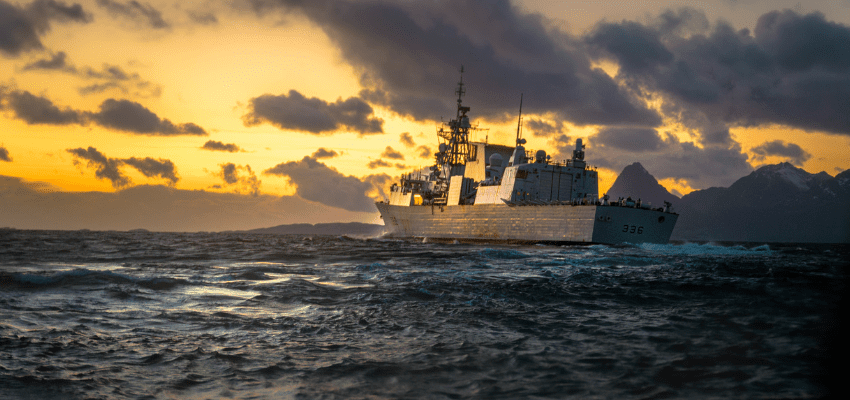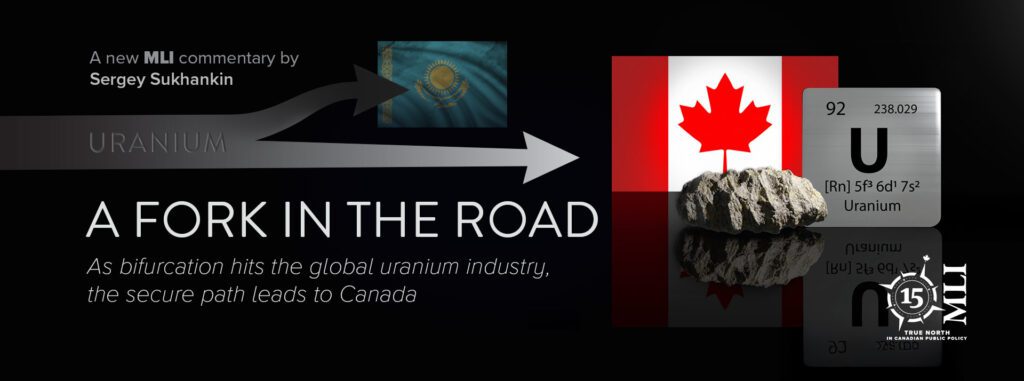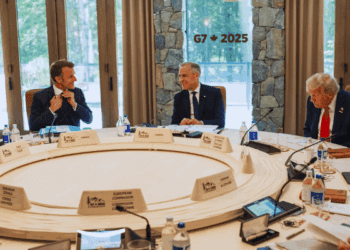This article originally appeared in the Windsor Star.
By Christopher Coates, May 20, 2025
Let’s not sugar coat things. The tariff turmoil and calls for Canada to become the “51st state” have been tough.
Canadians feel abandoned by a neighbour they had trusted, and the world was tossed around by Washington’s actions affecting every hemisphere. But economic turmoil may not be the only uncertainty Canadians will experience.
What if Canadians wake up tomorrow and find a world that’s turned completely upside down, diplomatically and defensively — facing an untrustworthy information environment, imminent security threats, and an unrecognizable diplomatic scene where familiar forms of engagement no longer deliver results?
Many Canadians describe U.S. President Donald Trump’s tariffs as a wake-up call. They realize the post-Second World War order — which delivered so much prosperity — is in its dying stages, and the globe is facing a new economic order.
While some are now paying attention, the underlying conditions driving this change have been developing for years. For example, marginal per-capita GDP growth places Canada second-worst in the G7, and only ahead of Luxembourg among the 38 OECD countries. That’s on a list of macroeconomic failures that predate Trump in the White House.
It’s not just the economy. Material prosperity is not the only benefit the old order delivered to Canadians.
Russia’s double invasion of Ukraine — first launched in 2014, and again in 2022 — indicated that one of the world’s most powerful nations had changed the way it was willing to interact with others. And the relationship between China and the West has become increasingly antagonistic and competitive.
Canadians and their elected officials largely fail to realize how China has co-opted the rules-based order to gain advantage for itself. Yet Canadians religiously pursue these longstanding rules, while Russia, India, and Saudi Arabia defy them with extraterritorial behaviours, and Middle East violence spirals.
The existing rules have not prevented unacceptable behaviour. Canada’s government has done little to prepare its citizens for a world in which the old rules are no longer working — either in economy and trade, or in defence, security, and international relations.
Setting the tone, China is clearly being competitive, not co-operative or collaborative, and Canada has not adjusted to a world where competition is the norm.
Multilateral institutions have been eroding for years. The UN Security Council is unable to deliver peace in Ukraine or Gaza. International accords like the Ottawa Convention against landmines, the Paris Climate Agreement, and the INF Treaty on nuclear weapons are among many being abandoned or ignored. There’s a shift towards mini-lateralism with regional arrangements like AUKUS, QUAD, and BRICS becoming common to address a variety of challenges.
Once noble, it seems increasingly futile to invest Canada’s time, energy, and hope into institutions and methods that increasingly fail to deliver their intended benefits or results.
Authoritarianism and populism are the leading domestic movements in more and more of Canada’s potential partners, affecting trade, foreign policy, defence, and security.
Canada is no less affected by the strategic rivalry between the U.S. and China than the West’s Cold War policies were defined by its conflict with the Soviet Union — impacting trading relationships, driving economic fragmentation, and spurring technological innovation including a new arms race.
The Canadian government has failed to orient its citizens or its policy direction toward this strategic context.
Internally, Canada’s own security environment has also been degrading, with a dramatic rise in ideologically motivated violent extremism, increases in cybercrime, gun violence, organized crime and drug violence. Along with challenges like money laundering, disinformation, and foreign interference, this has led to an overall decrease in public trust and institutional confidence.
None of this needs to be a surprise. Taken together, these realities represent a dramatic shift in the international and domestic order. It is unreasonable to think that “things will get back to where they need to be,” as there is no “going back.”
Canadians have come to recognize significant economic changes, and appear ready to act.
But like the economic indicators that were not at first appreciated, the world has moved on from the post-Second World War geopolitical order.
If the new Canadian government does not immediately prepare for this reality, the crisis that next awakens Canadians will make America’s Liberation Day look like a bad hair day.
Lt.-Gen. (Ret’d.) Christopher Coates is director of national defence and foreign policy at the Macdonald-Laurier Institute.







